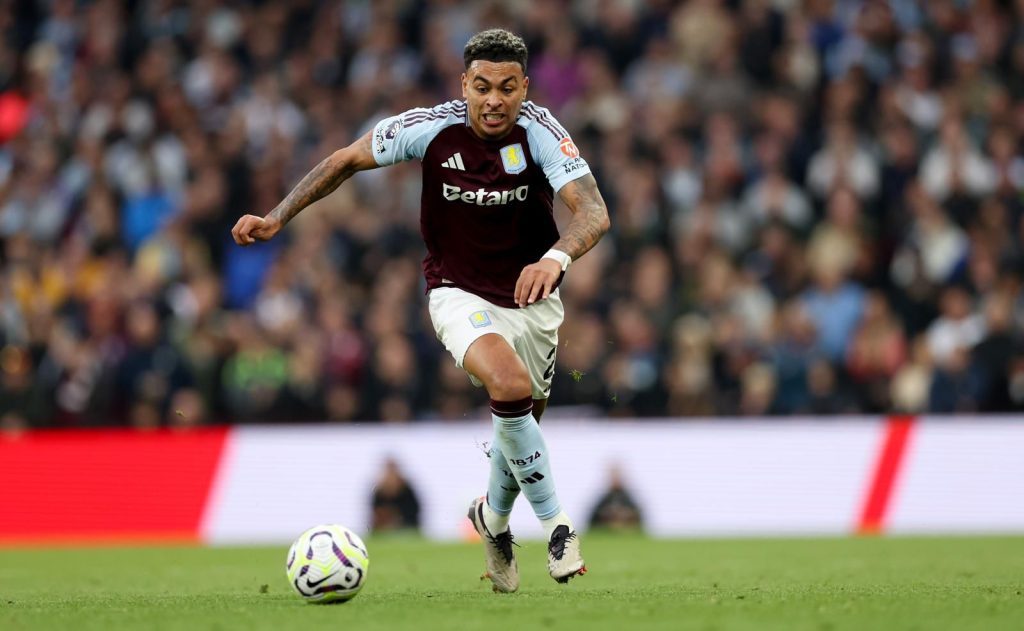FA Cup Semi Finals Preview
General April 11, 2025 3 min read.Manchester City v Nottingham Forest
Nottingham Forest and Manchester City face off for a historical tie with Forest reaching their first FA Cup Semi-Final since 1991, and furthermore not won an FA Cup since 1959.
Fast forward to the modern day, the picture for the reds has changed dramatically since the arrival of Nuno Espirito Santo, who have overcome significant challenges, including surviving in the previous season after a four-point deduction after breaching the Premier League profit and sustainability rules.
At the time of writing Forest sit comfortably in 3rd place with the side having a 5-point buffer on 6th place almost guaranteeing a Champions League spot for the historical two-time winners.
Although for many Forest fans, the possibility of silverware outweighs Champions League qualification tenfold. To solidify themselves as FA Cup winners could solidify this Nottingham Forest side as the best in their clubs history.
Meanwhile for Guardiola’s Manchester City, they are a struggling team at the time of writing sat in 5th. Which would qualify them for Champions League, although they sit one point ahead of Chelsea and Aston Villa.

For Manchester City, this is familiar territory. They’re making their seventh consecutive FA Cup semi-final appearance and eyeing a third cup triumph in six years, a level of consistency that dwarfs their fellow semi-finalists.
Yet, despite their pedigree, this season brings a different kind of pressure. The FA Cup could be their only tangible shot at silverware, a rare position for a side that has defined English dominance in the modern era. Their last two FA Cup wins came as part of historic trebles.
This is a team that hasn’t finished a season without silverware since 2016/17. The standards they’ve set are sky-high, and anything less than glory feels like underachievement.
But their road to Wembley comes with a gaping void up front. Erling Haaland, responsible for 60% of City’s goals, is sidelined with an ankle injury sustained during their quarter-final win over Bournemouth. He’s not expected back for another seven weeks.
Crystal Palace v Aston Villa
Crystal Palace take on Aston Villa in the other semi-final, two clubs with proud histories but long trophy droughts, now stand on the verge of something special.
For Palace, it’s been a tormenting 165-year wait for a major honour. But under Oliver Glasner, there’s a new sense of belief. The Eagles have become a defensive juggernaut, setting a club record with six consecutive away wins without conceding since mid-December. Now may be the worst possible time to face them.
The Austrian manager has instilled faith, and resilience, reflected in his record, the highest Premier League win percentage of any manager in Palace history, winning 25 matches at a rate of 49.02%.
There’s also recent history in Palace’s favour. Glasner has beaten Unai Emery in their last four encounters, most recently in a resounding 4-1 victory at Selhurst Park. That game saw Ismaïla Sarr, Jean-Philippe Mateta, and Eddie Nketiah all found the net
Mateta, in particular, embodies the Glasner effect. Once an outlier with 11 goals in 81 appearances, he’s now thriving, scoring 25 in his last 40 games.
For Villa, Unai’s may feel like his squad is peaking at the right time with a clean bill of health amongst their squad, and their ability to claim the biggest scalps this season. Prior to facing a formidable Paris Saint Germain, the Villans went seven straight wins across three competitions. The Spaniard has transformed them into a persistent force, remaining in the FA Cup and Champions League with potential of qualifying for next season on the cards.

Much of their success stems from their tactical flexibility, now further amplified by the arrivals of Rashford, Malen, and Asensio. Shifting seamlessly between a 4-4-2 and a 4-2-3-1, they’ve created a system that allows their wide players to drift inside and influence the game centrally.
This fluidity is underpinned by a robust midfield, typically anchored by two of Tielemans, Onana, or Kamara, offering a blend of defensive solidity and progressive ball-playing ability.
For many neutrals, the 2023/24 FA Cup final represents an opportunity for change. Manchester City, one of the nine clubs to have held a monopoly over the trophy in the last three decades, have become the face of the competition’s modern dominance. For many, a win for one of Nottingham Forest, Aston Villa, or Crystal Palace would be a refreshing change, offering a narrative of historic resurgence.
How do I book tickets?
As official ticket agents for Wembley Stadium, Circuit is proud to offer exclusive FA Cup hospitality packages and tickets for upcoming matches.
Wembley remains one of the world’s most iconic venues, home to legendary sporting events and unforgettable live shows. Now, you can experience the historic FA Cup, with premium seating and luxury hospitality with Circuit.
This tour is set to be a milestone moment for the clubs. Don’t miss out! Secure your FA CUP VIP tickets below.
